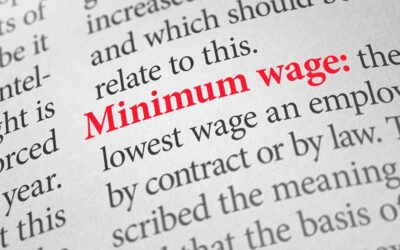News
Stay in the know with the latest updates and news from Integrity Partnetship
latest news
Working within Accountancy and Taxation, we are always evolving our services, keeping in line with new government legislation and exploring new technology to support our digital accountancy services.

Help to Save scheme extended
As part of the recent Budget measures, it has been confirmed that the Help to Save scheme is to be extended by a further 2 years, until April 2027. The last date an account can be opened under the
Changes to HICBC
It was announced as part of the Autumn Budget measures that the government will not now proceed with the reform to base the High Income Child Benefit Charge (HICBC) on household incomes.
To make it
Keeping an eye on competitors
Keeping an eye on competitors offers crucial advantages, especially in a dynamic market. Here’s why it pays off:
Improving Market Positioning
By observing competitor pricing, branding, and marketing
R&D receives a welcome boost in the Budget
As part of the October Budget the Chancellor announced the highest ever level of government investment of £20.4 billion in research and development for next year, reinforcing the government’s
Autumn Budget 2024 – Minimum Wage increases
The Chancellor of the Exchequer, Rachel Reeves announced significant increases to the Minimum Wage rates on the eve of the Budget. The Chancellor confirmed that the government has accepted in full the
Autumn Budget 2024 – NIC changes
As had been widely predicted, the Chancellor announced increases to the rate of National Insurance contributions (NICs) that are paid by employers. The main rate of secondary Class 1 NICs will
Autumn Budget 2024 – Capital Gains Tax
In the Budget it was announced that the rates of Capital Gains Tax (CGT) are to be increased with immediate effect. The main rates of CGT that apply to assets other than residential property and
Autumn Budget 2024 – Inheritance Tax changes
A number of changes to Inheritance Tax (IHT) were announced as part of the Budget measures. We have covered each of the main measures below. It should be noted that these changes are not coming into
Autumn Budget 2024 – Higher rates of SDLT
It was announced as part of the Budget measures that the higher rates of Stamp Duty Land Tax (SDLT) on purchases of additional residential properties will increase to 5% (from 3%) for transactions
Autumn Budget 2024 – Fuel Duty rates
In the Autumn Budget, the Chancellor had been widely expected to increase fuel duty rates. However, in a surprise announcement she extended the fuel duty cut for a further 12 months to help support
Autumn Budget 2024 – Alcohol and Tobacco Duty
As part of the Autumn Budget measures the Chancellor announced that the duty rates on tobacco products were increased by 2% above the rate of inflation (based on RPI) effective from 6pm on 30 October
Budget summary 30 October 2024
The long awaited, much anticipated and dreaded first Budget of the new Labour government was delivered to Parliament today – 30 October 2024 – by the Chancellor, Rachel Reeves.
We now know where the
Crackdown on insurance fraud
Insurance companies have united to step up efforts to crack down on fraudsters seeking to manipulate the UK insurance market with bogus claims and duping innocent people into buying fake insurance
Is Income Tax morphing into a stealth tax?
It is rumoured that the Chancellor will delay any increase in the Income Tax higher rate tax threshold beyond the present April 2028 freeze.
The UK Income Tax higher-rate threshold was last increased
HMRC shares 5 common reasons for helpline calls
There are a little over three months remaining to file your self-assessment tax return online for 2023-24. The deadline is 31 January 2025. As this date approaches, an increasing number of individuals
Changing a company’s year end date
There are specific rules that restrict changing a company’s year-end date, also known as the "accounting reference date". Initially, this is based on the date of incorporation. Under certain
Take goods with you to sell abroad
There are specific customs requirements for commercial goods that you take with you to sell abroad. You must declare any goods intended for sale outside the UK, whether they are in your baggage or a
VAT recovery from car leasing payments
The VAT treatment of motor expenses is an important concern for any business that incurs VAT on these costs. Below, we highlight key points to consider regarding the recovery of input tax (VAT) when





















